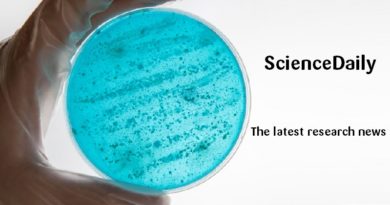Dietary supplements
- New research suggests increasing the ratio of dietary potassium to sodium intake may be more effective for lowering blood pressure than simply reducing sodium intake.
- A new study maps how specific lactic acid bacteria can enhance both the flavor and nutritional quality of plant-based dairy alternatives. The findings may have wide-reaching perspectives for the further development of sustainable foods.
- Scientists have shown that a sequence of just three amino acids may reduce the severity of psoriasis, when applied topically in an emollient cream.
- Linoleic acid, an omega-6 fatty acid found in seed oils such as soybean and safflower oil, and animal products including pork and eggs, specifically enhances the growth of the hard-to-treat 'triple negative' breast cancer subtype, according to a preclinical study. The discovery could lead to new dietary and pharmaceutical strategies against breast and other cancers.
- A new study has analyzed and compared the fatty acids in the blood of individuals with schizophrenia, of those with cannabis use disorder and of those with both diagnoses, with the aim of shedding light on new biomarkers and improving the understanding of the biological relationship between the two disorders. The study also offers a […]
- When mothers eat a diet high in fat and sugars, their unborn babies can develop liver stress that continues into early life. A new study sheds light on changes to the fetus's bile acid, which affects how liver disease develops and progresses.
- Scientists have uncovered how a gut bacterium, Clostridium scindens, aids in healing intestinal injuries by restoring bile acid balance. Their findings could pave the way for new treatments for ulcerative colitis, a chronic inflammatory bowel disease.
- Higher levels of the minerals copper and manganese in pregnant women were associated with lower blood pressure and a reduced risk of developing high blood pressure decades later, according to a long-term study.


